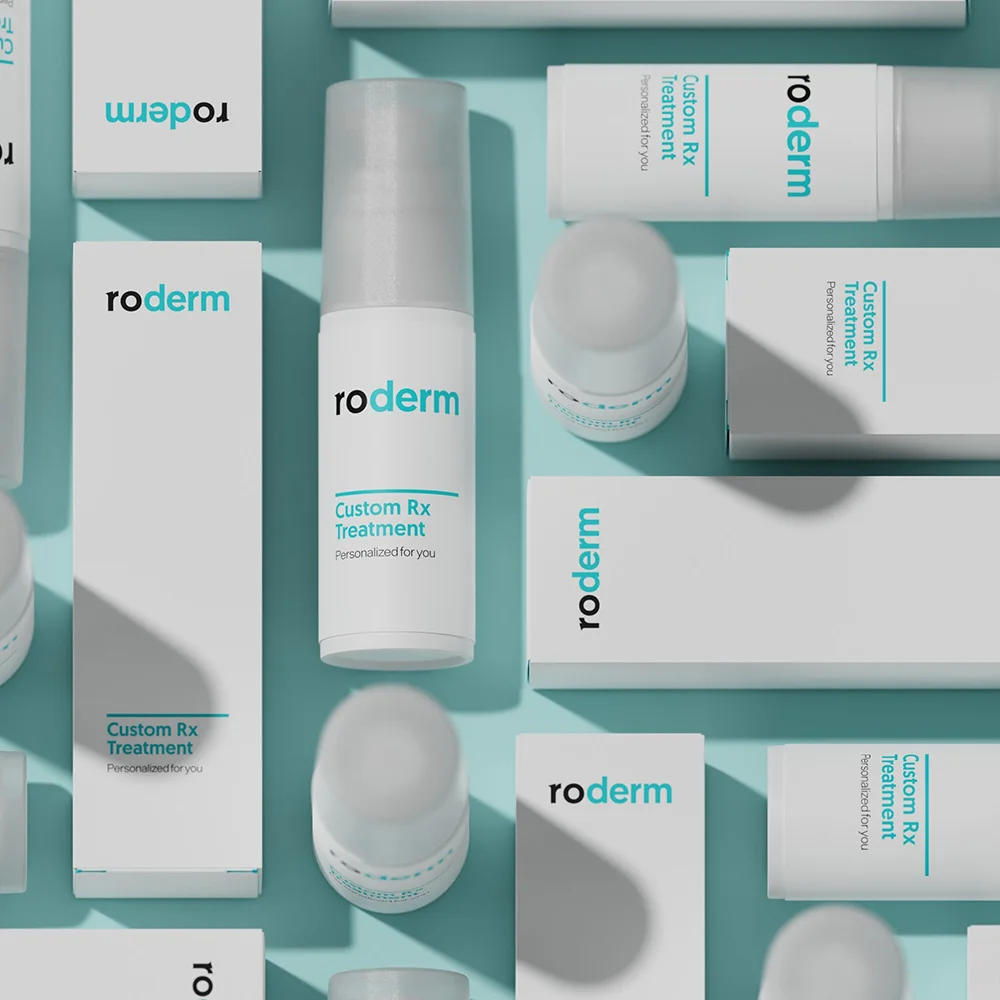Here's what we'll cover
Here's what we'll cover
Sometimes we do something for one outcome—and end up with the exact opposite. Yoga's supposed to be relaxing, and yet many times, you're left breaking a sweat. Massages can actually cause your muscles to cramp up if you don't stretch afterward. And eating, which is also generally a relaxing experience, can cause you to perspire.
So what's the deal with sweating after eating? After all, you're probably not a competitive eater. It sort of makes sense, even without science, that downing 50 hot dogs in five minutes would activate someone's sweat glands. But a nice sit-down dinner is different, and, apart from holidays like Thanksgiving, you're generally not stuffing yourself. Here's what might be making your shirt wet and how to prevent it. (Sorry, we can't do anything about sweating on that dinner date if it's about nerves.)
Can certain foods make you sweat?
Yes, absolutely. Although the science is still torn on whether the meat sweats are real, experts agree certain foods can get the juices flowing. There are a couple of categories of foods that are the main culprits if you find yourself sweating after eating: spicy foods and (possibly) sugary foods. Acidic foods, like those that contain vinegar, may increase the likelihood of sweating as well as foods served hot, like soup. But the main triggers are outlined below and may cause facial sweating or excessive sweating in the armpits.
Spicy foods
It's widely known that spicy foods can make you sweat. That's thanks to a compound in peppers that gives them their kick, called capsaicin. Our bodies sense the presence of this heat-inducing compound through a receptor called TRPV1. When TRPV1 is sensitized and picks up that there's capsaicin around, it can cause thermal hyperalgesia. That's a condition in which you perceive things as really hot or cold that are truly only warm or cool (O'Neill, 2012). This could explain why you're suddenly sweating in a restaurant that was a comfortable temperature for you just moments ago.
Capsaicin also raises your body temperature, and this reaction may serve a purpose. There could be a good reason you see a lot of spicy food in hot, dry areas of the globe. "Spicy foods, especially from capsaicin-containing peppers, warm your body, which in turn makes you sweat," explains Dana Hunnes, Ph.D., RD, MPH, senior dietitian at Ronald Reagan UCLA Medical Center and an adjunct assistant professor at the UCLA Fielding School of Public Health. "This, in turn, cools down your body, and this may be important in warmer climates." (Unfortunately, she notes, that isn't so effective at cooling you down in hot and humid climates. It needs to be dry).
Sugary foods
To be clear right off the bat, we're not saying sugary foods will always cause sweating after eating for some people. Even if you get sweaty after a sugary snack or meal, that doesn't mean sugar is a trigger for you, rather, that perhaps you need to consciously balance your meals in order to slow digestion. If sugar is making you sweat, it's likely because your body is producing too much insulin in response to what you ate. This, in turn, causes your blood sugar to plummet, a condition known as reactive hypoglycemia, or low blood glucose as a response to a meal rather than caused by diabetes. Sweating is a common side effect. But it's worth noting that a food that triggers you alone may not cause sweating if eaten along with a source of quality fat or fiber to slow digestion. Talk to a healthcare professional about what you're experiencing. They may take blood samples to look at blood glucose levels or offer lifestyle suggestions. Reactive hypoglycemia may require interventions.
Gustatory hyperhidrosis
In some cases, sweating after eating is related to your nerves and not to the food on the menu. There are several different kinds of hyperhidrosis. Primary hyperhidrosis is the most common cause of excessive sweating, but its cause isn't known. Secondary hyperhidrosis, on the other hand, is excessive sweating due to some underlying cause. Gustatory hyperhidrosis is simply when it happens after you eat. Gustatory sweating is also called Frey's syndrome, one type of secondary hyperhidrosis, and has to do with the nerves in and around the mouth.
Your chances of having Frey's syndrome are higher if someone in your family has it, and it is generally caused by a previous surgery near the parotid glands, the body's biggest salivary glands that are located just in front of the ears. Surgery may damage these nerves, causing the syndrome. While the condition is not entirely understood, one of the biggest signs is the development of sweating after eating within a year following surgery (Frey Syndrome, n.d.). Frey's syndrome is also considered secondary hyperhidrosis because the sweating is a byproduct of underlying nerve damage.
Nerve damage, anxiety, alcoholism, and gout may all be underlying conditions causing secondary hyperhidrosis. Health conditions involving damage to the nervous system, such as Parkinson's disease, may also cause gustatory hyperhidrosis. In some cases, diabetes can cause diabetic neuropathy, damage to the nerves that may also cause this sweating. It's common with primary hyperhidrosis for sweating to be localized in certain parts of the body. This is called focal axillary hyperhidrosis and accounts for around 51% of cases of hyperhidrosis. In some cases, such as hyperhidrosis caused by Harlequin syndrome, the sweating can happen on just one side of the body (Schlereth, 2009).
Managing sweating after eating
The easiest option if you know your triggers is, of course, to avoid foods that make you sweat. Hunnes suggests easing up on the spice if peppers seem to cause sweating, and you're adamant about not giving up these flavorful ingredients altogether. If reactive hypoglycemia (low blood sugar) is the culprit, you should speak with your healthcare provider. The excess insulin may be due to a medical condition that requires further testing.
"If it is [an underlying medical condition], the only treatment I know of is botulinum toxin," Hunnes says. (You likely know this better as Botox. Injections of this medication have shown promise in easing sweating after eating in one study. And the researchers suggest it as a first-line treatment since it appears to at least lessen the sweating and successfully diminish sweating with every reinjection (Laccourreye, 1999). (Medications like Botox wear off eventually, and the exact timeline differs from person to person.) You can discuss this treatment option with a dermatologist.
If your symptoms aren't severe or you're not ready to try Botox injections as a solution, over the counter (OTC) or prescription antiperspirants, and deodorants can help. There are special antiperspirants made in sprays and wipes for your face, hands, and feet as well. "Other potential ways to work around this might be having ice-cold beverages at the table so that you can cool off from the inside out," Hunnes suggests. For people with Parkinson's disease, some medications that manage symptoms of the disease (called anticholinergics) may lessen excessive sweating. But these medications aren't without their own side effects, so you should discuss your treatment options with a healthcare professional.
Don't brush it off
Hyperhidrosis can significantly affect quality of life. Having primary hyperhidrosis is associated with an increased risk of having anxiety by 49.6%, one study found (Braganca, 2014). And although that study didn't find an association between hyperhidrosis and depression, a 2016 study did. The study found that of the participants questioned, only 9.7% of those without hyperhidrosis experienced depression compared to 27.2% with the condition (Bahar, 2016). If you feel like your sweating is interfering in your daily life, consider consulting a medical professional to discuss your treatment options.
DISCLAIMER
If you have any medical questions or concerns, please talk to your healthcare provider. The articles on Health Guide are underpinned by peer-reviewed research and information drawn from medical societies and governmental agencies. However, they are not a substitute for professional medical advice, diagnosis, or treatment.
Bahar, R., Zhou, P., Liu, Y., Huang, Y., Phillips, A., Lee, T. K., … Zhou, Y. (2016). The prevalence of anxiety and depression in patients with or without hyperhidrosis (HH). Journal of the American Academy of Dermatology, 75(6), 1126–1133. doi: 10.1016/j.jaad.2016.07.001, https://www.ncbi.nlm.nih.gov/pubmed/27567033
Bragança, G. M. G., Lima, S. O., Neto, A. F. P., Marques, L. M., Melo, E. V. D., & Reis, F. P. (2014). Evaluation of anxiety and depression prevalence in patients with primary severe hyperhidrosis. Anais Brasileiros De Dermatologia, 89(2), 230–235. doi: 10.1590/abd1806-4841.20142189, https://www.ncbi.nlm.nih.gov/pmc/articles/PMC4008051/
Frey Syndrome. (n.d.). Retrieved February 11, 2020, from https://rarediseases.org/rare-diseases/frey-syndrome/
Laccourreye, O., Akl, E., Gutierrez-Fonseca, R., Garcia, D., Brasnu, D., & Bonan, B. (1999). Recurrent Gustatory Sweating (Frey Syndrome) After Intracutaneous Injection of Botulinum Toxin Type A. Archives of Otolaryngology–Head & Neck Surgery, 125(3), 283. doi: 10.1001/archotol.125.3.283, https://www.ncbi.nlm.nih.gov/pubmed/10190799
O’Neill, J., Brock, C., Olesen, A. E., Andresen, T., Nilsson, M., & Dickenson, A. H. (2012). Unravelling the Mystery of Capsaicin: A Tool to Understand and Treat Pain. Pharmacological Reviews, 64(4), 939–971. doi: 10.1124/pr.112.006163, https://www.ncbi.nlm.nih.gov/pmc/articles/PMC3462993/
Schlereth, T., Dieterich, M., & Birklein, F. (2009). Hyperhidrosis—Causes and Treatment of Enhanced Sweating. Deutsches Aerzteblatt Online, 106(3), 32–37. doi: 10.3238/arztebl.2009.0448b, https://www.ncbi.nlm.nih.gov/pmc/articles/PMC2695293/










